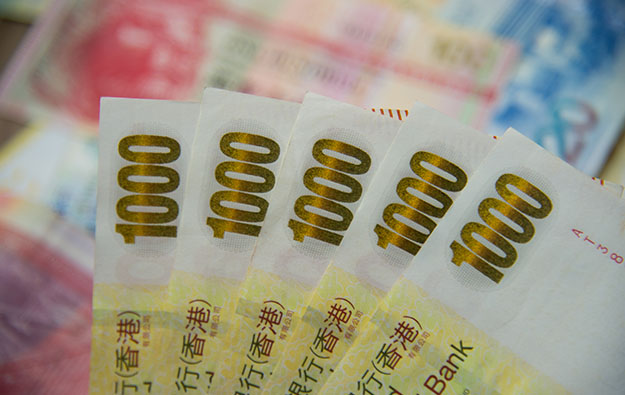Macau VIP battle most likely via casino credit: expert
Mar 05, 2020 Newsdesk Latest News, Macau, Top of the deck

The main area of competition in the near term for high-roller business among Macau’s six casino operators is likely to be which of them supply the most credit to stimulate the segment. That is according to casino industry consultant Ben Lee, managing partner of IGamiX Management and Consulting Ltd, and who is also a veteran of gaming operations in Australia and in Macau.
In response to an enquiry from GGRAsia about how Macau operators might seek to boost their high-roller business as the market builds up again after the global coronavirus alert, Mr Lee told us: “The competition will be on who can give credit, and large amounts at that, to reinvigorate the VIP segment…”
Credit Suisse AG said in a note on Wednesday that Macau casino operator Wynn Macau Ltd had – for the first time in 14 years – raised its commission payable to VIP junkets. The brokerage added that, “a few months ago”, Wynn Macau Ltd had already “doubled its junket credits from one month to two months of advanced commission”.
Mr Lee told GGRAsia that operator-supplied credit “has the benefit of [casinos] not needing to cede margin to the junkets as they are using the operators’ funds”. That was a reference to the margin pressures on Macau casino operators in relation to VIP business.
Operators are left theoretically with circa 20 percent of casino gross gaming revenue from VIP business after giving nearly 40 percent in tax to the Macau government, and at minimum 40 percent to junkets in incentives. But often the operators also are under pressure to pay – from their circa 20 percent – other costs such as complimentary rooms and entertainment for junket players. Such soft costs can be additional even to any incentives casinos pay junkets on top of the basic 40 percent of the gross, suggested Mr Lee.
Periodically in the Macau market – especially during upturns – it has been reported that the portion of VIP players directly-managed by the house has risen, on the basis that such a practice offers operators a better margin than they get from junket-managed gamblers.
The casino giving credit to players directly, “confers” some of the “same benefits” of increasing credit extended to junkets, in terms of supporting house margin and stimulating consumer demand, suggested Mr Lee.
Nonetheless, a key function of junkets is that they take on responsibility not only for credit issuance to players, but collection on any player debts in the event of player losses at the tables. Gambling debts are not recognised as legally-enforceable obligations within mainland China, the jurisdiction from where come many of Macau’s high rollers.
The “downside” of the casinos directly-managing VIP credit is a “sting in the tail in the form of likely bad debts two or so years down the track,” Mr Lee told GGRAsia.
Regarding recent commentary to GGRAsia from a local junket trade body that the coronavirus crisis might see the closure of some junkets and further consolidation of the sector, the consultant told us that the main consolidation “had already occurred two years back”.
He added: “The top-seven junkets between them probably account for about 75 percent to 80 percent of the VIP revenue. No resort in Macau can exist, let alone prosper, without the presence of the top-four junkets.”
Mr Lee further noted, regarding the larger junkets’ power in the market: “All of the top junket operators in Macau operate on a ‘profit-share’ basis with the operators – actually that is a misnomer, it is really ‘revenue-share’ on the gross – topping out somewhere between 45 percent to 48 percent, including bonuses.”
Related articles
-
 Macau mass-market GGR flat sequentially...
Macau mass-market GGR flat sequentially...Jul 16, 2024
-
 Wynn 2Q Macau EBITDAR likely at...
Wynn 2Q Macau EBITDAR likely at...Jul 16, 2024
More news
-
 Donaco EBITDA up y-o-y to above US$4mln...
Donaco EBITDA up y-o-y to above US$4mln...Jul 26, 2024
-
 HK listed Palasino upgrades Czech...
HK listed Palasino upgrades Czech...Jul 26, 2024
Latest News
Jul 26, 2024
Border-casino operator Donaco International Ltd has achieved a 164.17-percent year-on-year increase in its latest quarterly group earnings before interest, taxation, depreciation and amortisation...Sign up to our FREE Newsletter
 (Click here for more)
(Click here for more)
Pick of the Day
”We’ve got more traction outside of Macau at the moment. But Macau’s going be a bigger focus for us”
David Punter
Regional representative at Konami Australia
Most Popular
 Sheraton brand to exit Londoner Macao, to be Londoner Grand July 25, 2024
Sheraton brand to exit Londoner Macao, to be Londoner Grand July 25, 2024  Macau regulator probes unlicensed gaming agents July 24, 2024
Macau regulator probes unlicensed gaming agents July 24, 2024  Philippines gives 20k aliens in POGOs 60 days to leave July 25, 2024
Philippines gives 20k aliens in POGOs 60 days to leave July 25, 2024  Philippines-listed DigiPlus says not affected by POGO ban July 24, 2024
Philippines-listed DigiPlus says not affected by POGO ban July 24, 2024  Sands China 2Q EBITDA down q-o-q amid low hold, renovation July 25, 2024
Sands China 2Q EBITDA down q-o-q amid low hold, renovation July 25, 2024






